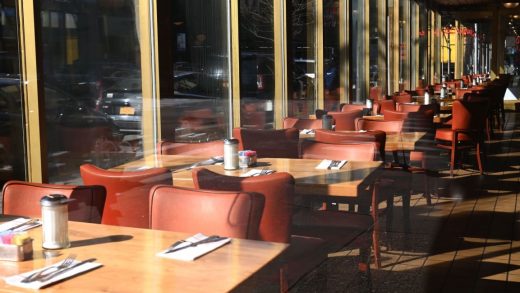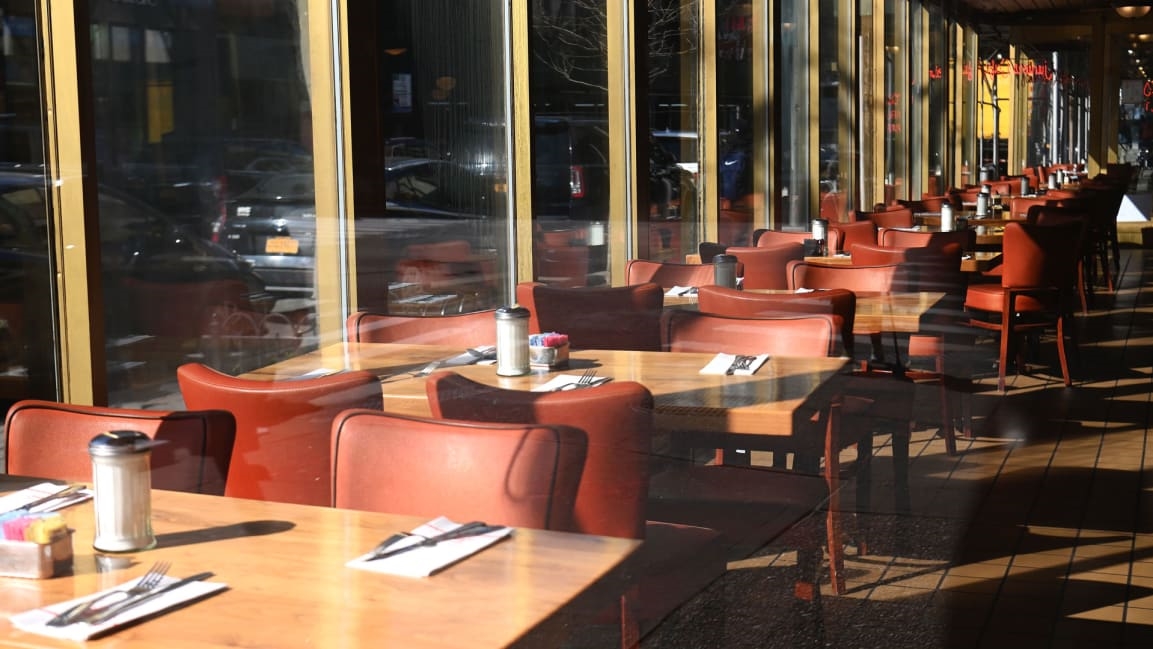Government loves to regulate my restaurant. Where are lawmakers when I need them most?
We have all had to make extraordinarily difficult decisions this week in the face of a pandemic affecting the health of millions and an uncertain response from federal, state, and local lawmakers. I own a restaurant in Manhattan’s SoHo neighborhood, and my fellow restaurateurs and I have never before faced such an intense pressure to figure out how to fulfill our purpose: to take care of our teams and nourish our communities while operating our businesses. All three goals have been at odds this week like never before. And government leaders to date have not helped us. In fact, things have been getting worse.
Here’s the irony: Governments at all levels regulate pretty much every aspect of our businesses, far more than most industries can comprehend, which helps explain razor-thin operating margins—often below 10% at many independent restaurants. City, state, and federal governments hold us to detailed rules regarding employee compensation, hours, breaks, and more. Most entrepreneurs could not fathom operating and managing so many overseers in this fashion, with hands tied essentially behind your back. We do it because we love it, and we believe in the power of bringing people together. The effective industry shutdown in the wake of COVID-19 coupled with already slim operating margins forced many owners to let go of their teams this week.
In the wake of this global pandemic, lawmakers have pretty much left restaurants to fend for ourselves. New York’s governor and the mayor of New York City have sent mixed or vague messages on what we should do in such uncertain times. The government took a strong stance on “work from home” policies nationwide, but the service industry literally cannot work from home. None of the guidance took us into account.
We were then told to practice “social distancing,” but there was no tangible information on what that even means, particularly as it relates to businesses that exist as gathering places. Then we were instructed by New York City to operate at 50% capacity, again without clarity on what that means (distance between tables? seat count? legal capacity?), coupled with no suggestions for how our businesses could financially make up for a government-mandated 50% decline in sales. All of this while the mayor and governor were still encouraging the public to dine out and support local businesses.
Now NYC restaurants are permitted to be open with takeout and delivery only, but without COVID-19 testing available, this remains an unsafe option, given we don’t know who are virus carriers, regardless of symptoms or seeming healthy. What’s abundantly clear is that everyone, not just those with corporate jobs that can work from home, must remain at home to slow the spread of COVID-19. I just wish the government had called it honestly and more definitively last week. We wanted leadership and specific plans for the future, and instead are left to interpret ambiguous mandates daily and figure it out on our own.
So what would help us? We’ve started to help ourselves, for a start. Our industry that’s amongst the top employers in the country has coalesced at every level: NYC Hospitality Alliance for the city; Relief Opportunities for All Restaurants (ROAR) for the state; and the Independent Restaurant Coalition for the federal level. Our industry just conducted layoffs at a scale that has yet to hit the unemployment statistics, and without relief it could be structural, which would compound the financial impact of the health crisis drastically. We need the government to double unemployment to those laid off and furloughed during this period. Those claiming unemployment cannot live off of the 50% weekly salary reimbursement offered—it’s not enough or livable when someone regularly makes minimum wage. We need to care for our people who have dedicated their lives to taking care of others.
Next, we need to stabilize our businesses so that we have places for our people to come back to on the other side. We currently have an inability to make revenue while still facing significant costs, and without reserves to cushion that reality. We need sweeping, full stop-rent relief, for at least two months if not more, and, in turn, landlords should have their mortgage payments forgiven for that period if needed. Consider suspending local sales and federal payroll tax to whatever extent necessary to ease that burden during this free fall. Require business-loss insurers to cover COVID-19 closures for hospitality businesses. Our farmers and other suppliers will need a place to sell, perhaps through CSA presences at supermarkets, which are currently operating at high capacity as essential businesses, and will likely remain open in an official quarantine. Lawmakers can help independent food suppliers to sell at retail. Regulators could work with online platforms such as Caviar or Instacart to enable consumers to support our farms directly in our absence. There’s a real opportunity for grocery, delivery, and farms to align and collaborate right now.
Finally, we’ll need distinct instruction on how and when we can all resume social interaction. This will be critical, so we don’t have the same ambiguous, distressing slow drip reopening as we did for closing. That will only double down on the economic implications we will undoubtedly all face.
ROAR has been activated and coordinated, and I personally have been in constant contact with restaurant owners in my neighborhood and throughout the city. For us, this has felt like a no-win situation all around. Our teams need and want work and to be paid; our teams cannot earn a living remotely; we want to support our communities during this stressful time; and we want to sustain our business so we can continue to do what we love and our communities depend on when the dust settles on the other side. Never before has balancing this seemed so impossible.
I’ve had few moments to reflect during this frenetic and confusing week, but I’ve come to understand that the very thing that makes my restaurant appealing to my guests—individuality, our quirky, decidedly un-cookie-cutter approach to food and service, our independent streak—is a huge disadvantage when it comes to collaborating with regulators in crisis. We need a seat at the table before it’s too late. My fellow independents and I have no lobbying power, no scale to leverage with lawmakers (despite employing 15 million of their constituents), and no singular advocate that could make relief swifter than it’s been. We are beholden to the government to run our business, yet clearly our lawmakers do not feel beholden to us. It’s an obvious irony, and for this restaurant owner, my mission is to see that change once and for all.
Camilla Marcus is founder of west-bourne, a two-year-old sustainable restaurant in New York’s SoHo neighborhood. She’s worked with Tom Colicchio and Danny Meyer through her career in hospitality over the past decade.
(23)



